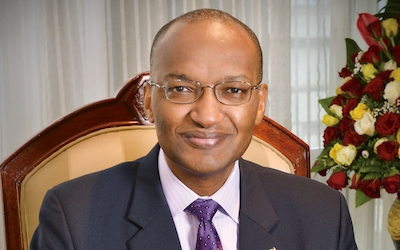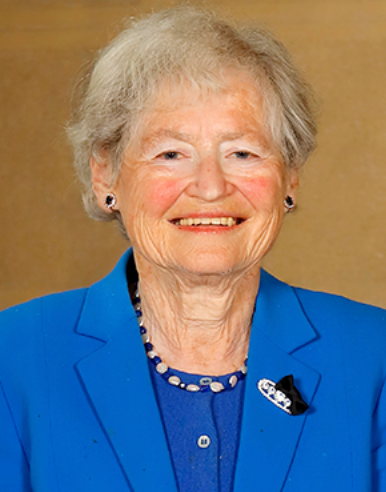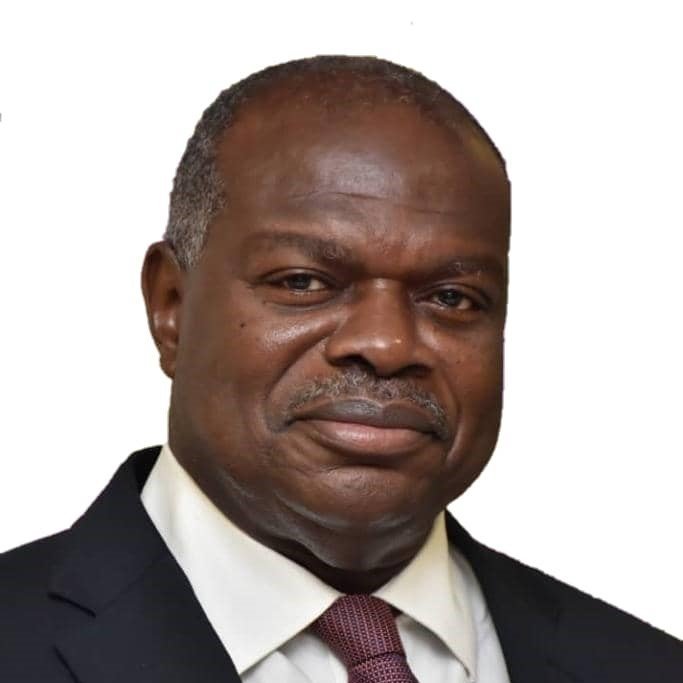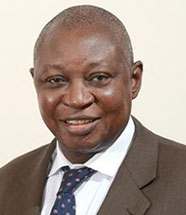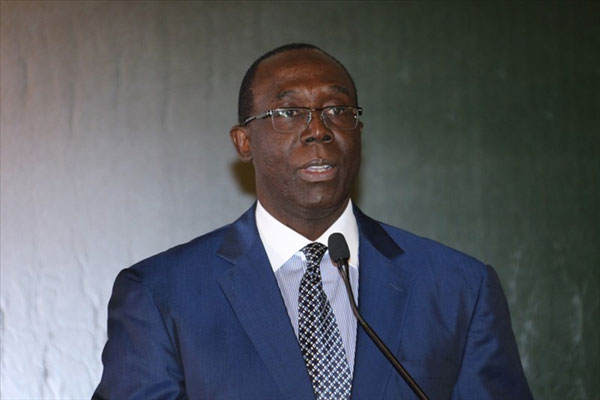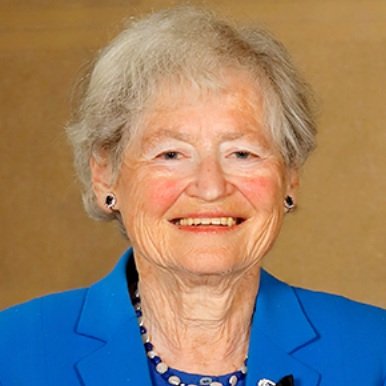Advisory Board
CGF receives strategic input from world-class international advisors
Composition
The Advisory Board of the CGF consists of international eminent persons from across four types of stakeholders:
Policy makers with first rate experience relating to financial sector reforms, in particular, and broad economic reforms, in general;
Private sector practitioners who have been (or are currently) involved in business transformation that aims to enhance livelihoods in low income African countries;
Civil society and other third sector actors who are actively involved in monitoring the interplay between international and local developments that shape policy and practice in financial inclusion;
Top researchers who have the experience or are currently involved in cutting-edge work in economics, finance or interdisciplinary investigations.
The main terms of reference (ToR) of the Advisory Board include:
To participate in workshops and focus groups of the CGF
To generate strategic input into the CGF so that research impact is meaningful, in the sense that research is influenced directly by the needs of stakeholders and the areas of enquiry remain focused on generating insights that are likely to have the greatest benefit to society; for example, by steering the research to respond to challenges faced by policy and practice and to maximise research take-up by policy makers and private sector practitioners
To act as an impartial source of guidance on the scientific quality of the project; for example, research stakeholders on the CGF will enhance the cutting-edge quality of the research and its potential to be published in top-ranked journals.
Profiles
Dr Patrick Njoroge
Dr Patrick Njoroge was appointed Governor of the Central Bank of Kenya in June 2015. He holds a PhD in Economics from Yale University, USA, and a master’s and bachelor’s degrees in Economics from the University of Nairobi, Kenya. Prior to joining the Central Bank, Dr Njoroge had a long career, spanning 20 years, at the International Monetary Fund (IMF), in Washington, D.C., USA. At the IMF, he was advisor to the IMF Deputy Managing Director from December 2012. He also served as Deputy Division Chief in the IMF’s Finance Department and IMF Mission Chief for the Commonwealth of Dominica, as well as other capacities beginning in 1995. Prior to joining the IMF, Dr Njoroge worked in Kenya as an economist at the Ministry of Finance and as a planning officer at the Ministry of Planning. His professional and research interests are in Macroeconomics, Economic Policy, International Finance, Development Economics, Econometrics and Monetary Policy.
Professor Stephany Griffith-Jones
Stephany Griffith-Jones is the Vice-Governor of the Central Bank of Chile since January 2024. She was appointed Board member in May 2022. Prof. Griffith-Jones is an economist, with a PhD in Economics; she is currently Professor Emeritus at IDS, University of Sussex, Director of Financial Markets at the Economic Policy Dialogue Initiative at Columbia University, Research Associate at ODI London, Non-Resident Research Fellow at the Center for Global Development in Washington DC, and Fellow Distinguished Award from the Climateworks Foundation of California. She is a researcher and advisor on international and domestic finance, including capital flows and reform of the international and domestic financial architecture, from a development perspective; the role of national and regional development banks, especially in Europe and Latin America, with particular emphasis on their increasing involvement in financing low-carbon investments. She leads numerous major global research projects on international financial and macroeconomic issues, with networks of academics and high-level policymakers from both developed and developing countries. A prolific author, she has written or edited more than twenty-five books and numerous articles in magazines and newspapers. A 2010 OUP book, co-edited with Joseph Stiglitz and José Antonio Ocampo "Time for a Visible Hand," deals primarily with financial regulation. She is an advisor to multiple international organizations, such as the European Commission, the European Parliament, the World Bank, the Commonwealth Secretariat, the IDB, the AfDB, and various UN agencies such as ECLAC, DESA, UNDP, and various governments and central banks, including the Government of England, Sweden, South Africa, and Brazil, and the central banks of Tanzania and the Czech Republic. She is also a member of the scientific councils of different think tanks.
Professor Franklin Allen
Franklin Allen is Professor of Finance and Economics and Executive Director of the Brevan Howard Centre at Imperial College London and has held these positions since July 2014. He was on the faculty of the Wharton School of the University of Pennsylvania from July 1980 – June 2016. He now has Emeritus status there. He was formerly Vice Dean and Director of Wharton Doctoral Programs, Co-Director of the Wharton Financial Institutions Center, Executive Editor of the Review of Financial Studies and Managing Editor of the Review of Finance. He is a past President of the American Finance Association, the Western Finance Association, the Society for Financial Studies, the Financial Intermediation Research Society and the Financial Management Association, and a Fellow of the Econometric Society. He received his doctorate from Oxford University. Prof. Allen's main areas of interest are corporate finance, asset pricing, financial innovation, comparative financial systems, and financial crises. He is a co-author with Richard Brealey and Stewart Myers of the eighth through twelfth editions of the textbook Principles of Corporate Finance.
Professor Ernest Aryeetey
Ernest Aryeetey was appointed as the new African Economic Research Consortium (AERC) Board Chair on 1 April 2021. Prof. Aryeetey is currently the Secretary-General of the African Research Universities Alliance (ARUA) and a former Vice-Chancellor of the University of Ghana. One of his strategic priorities as Vice-Chancellor was to develop the university into a research-intensive institution that supports structural transformation in Ghana and Africa. Prior to his appointment as Vice-Chancellor, he was a Senior Fellow and Director of the Africa Growth Initiative at the Brookings Institution, Washington, D.C. He was also Director of the Institute of Statistical, Social and Economic Research (ISSER) of the University of Ghana, Legon, for the period February 2003 – January 2010. Ernest was the chairman of the Board of the United Nations University World Institute for Development Economics Research (UN-WIDER), Helsinki (2009-2015). In April 2016, he was appointed by United Nations Secretary-General Ban Ki-moon and Director-General Irina Bokova of the United Nations Educational Scientific and Cultural Organisation (UNESCO) to the governing council of the United Nations University. In addition, he served as a Member of the Board of the Global Development Network (GDN) (2004-2009) and remains a member of the Governing Board of the Centre for Development Research (ZEF) at the University of Bonn, Germany. Until April 2019, he was the Board Chair of Partnership for African Social and Governance Research (PASGR) in Nairobi, Kenya. Professor Aryeetey has held academic posts at SOAS University of London, Yale, Cornell, and Swarthmore. His research work focuses on the economics of development with an interest in institutions and their role in development, regional integration, economic reforms, financial systems in support of development, and small enterprise development. He is well known for his work on informal finance and microfinance in Africa and has consulted for various international agencies on several development and political economy subjects. Professor Aryeetey studied Economics at the University of Ghana and then undertook graduate studies at the Universitaet Dortmund, Germany completing his PhD in 1985. In July 2017, he was awarded an honorary degree by the University of Sussex, UK, for his contribution to the study of African economies and higher education transformation in Africa.
Dr Caleb Fundanga
Caleb Fundanga is the Executive Director of the Macro Economic and Financial Management Institute (MEFMI) for Eastern and Southern Africa. Prior to joining MEFMI, he worked as Governor of the Bank of Zambia for the period 2002 to 2011. Among the many accolades bestowed upon him during this period were: Central Bank Governor of the Year for Africa and Global award by the Banker Magazine, a sister publication to the Financial Times of London in January 2007, Emerging Markets Magazine award of African Central Bank Governor of the Year 2007 which he received in Washington D.C. In September 2007, he was also awarded the African Central Bank Governor of the Year 2008 by the Annual Meetings Daily of Nigeria
Dr Charles Lufumpa
Charles Lufumpa served as Chief Economist and Vice President at African Development Bank and served as its Director of Statistics and Director Office Of the Chief Economist. He has over 30 years of professional work experience in statistics, poverty measurement, infrastructure, agriculture, and environmental issues in Africa. A total of 27 years of his professional work experience has been with the Bank, 22 of which have been at managerial and executive levels. Under his leadership, the Bank has emerged as one of the leading international institutions for promoting statistical development across Africa. Before joining the Bank, Dr. Lufumpa worked as a policy and planning economist with the Ministry of Agriculture and Water Development in Lusaka, Zambia. He also served as a visiting researcher from May 1984 to January 1985 in the Department of Economics of Iowa State University, USA, on staff exchange program with the Zambian Government. His key research interests are in the areas of statistics, poverty, infrastructure, agriculture, and environmental and economic issues in Africa. He obtained his BA in Economics and Statistics from the University of Zambia (1983), his M.Sc. in Agricultural Economics (1989), and PhD in Forest Resource Economics and Statistics (1991) from Iowa State University, USA.
Dr Bo Sjö
Bo Sjö is an Associate Professor of Financial Economics and Econometrics at the Department of Management and Engineering (IEI), Linköping University, Sweden. He holds a PhD in Economics from Gothenburg University where he also was appointed Docent in 2000. His research interests are focused on finance and macroeconomics; inflation modelling and monetary policy in developing countries, central bank intervention, portfolio selection, remittances, and the pricing of commodities. Before joining Linköping University in 2010, he worked with the Swedish Agency for Development Evaluation (SADEV), Griffith University, and Gothenburg University. He has consulted for African Development Bank (AfDB), Centre for International Development (CID) at Harvard University, Ministry of Planning and Development in Mozambique, African Economic Research Consortium (AERC), and the Swedish International Development Cooperation Agency (Sida). He has been a Visiting Associate Professor at the Department of Finance, McGill University, and a Guest Lecturer at the Department of Economics, University of Ghana in cooperation with UNU-WIDER. He has served in the Swedish Research Council’s grant committee for Development Research. He has completed funded projects and has ongoing projects with the NASDAQ-OMX Foundation and the Swedish Energy Agency. He has experience from teaching, course and programme development, and acting as an External Examiner at all levels, from the undergraduate to the doctorial level, including supervision of PhD students. He has conducted international workshops in econometric time series modelling, attended various international seminars and conferences. He has publications in well-renowned journals such as Journal of Economic Surveys, The World Economy, Journal of Financial Markets Institutions and Money, Journal of International Money and Finance, Journal of Multinational Financial Markets, Economic Modelling, and Studies in Non-linear Dynamics and Econometrics.
Professor Eric Girardin
Eric Girardin is Professor of Economics at Aix-Marseille University, France. His research, focused on macroeconomic, monetary and financial issues in the People’s Republic of China (PRC) and East Asia, has been published in numerous journals including the Journal of Development Economics, China Economic Review, and Energy Journal. He was one of the longest-serving members of ADBI’s Advisory Council (2004-2012) and has held visiting positions at the Bank of International Settlements (BIS), Asia-Pacific; the Hong Kong Institute of Monetary Research (HKIMR); the Bank of Finland Institute for Economies in Transition (BOFIT), the Chinese Academy of Social Sciences (CASS), Beijing; the People’s Bank of China (PBoC) Graduate School, Beijing; and Fudan University, Shanghai. Professor Eric Girardin studied both at Paris-Panthéon-Sorbonne and Cambridge Universities. He supervised a dozen Ph. D. students on China’s economy and financial system. His 80 publications include more than 20 journal articles on China’s stock, real estate and foreign exchange markets. He wrote a monograph on Banking Sector Reform and Credit Control in China, OECD, in 1997, and co-wrote with Zhenya Liu a book, Demystifying China’s Stock Market: The Hidden Logic Behind the Puzzles (Palgrave Macmillan, 2019). He coordinated an EU-Marie Curie research contract on China’s Electricity Industry.

